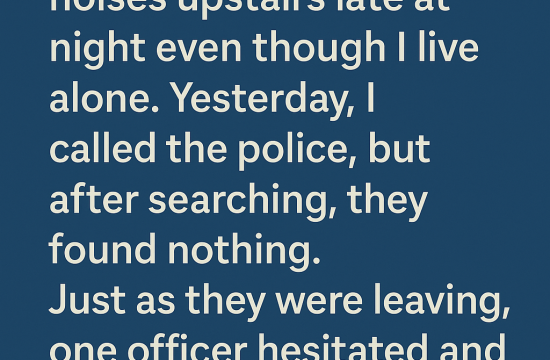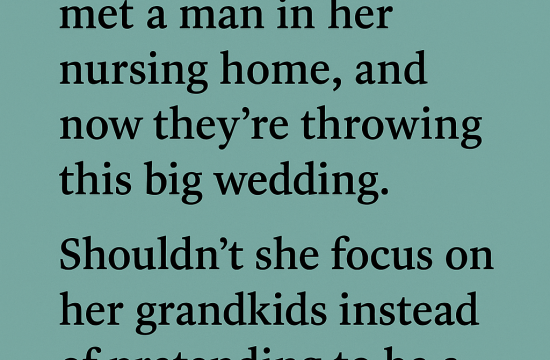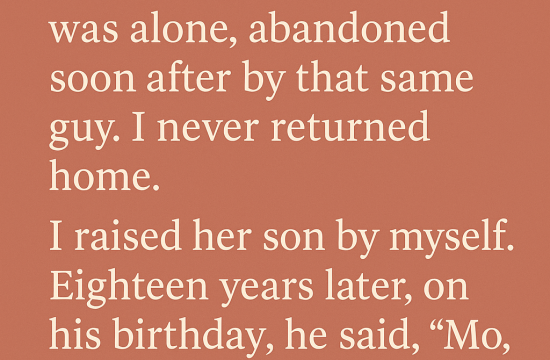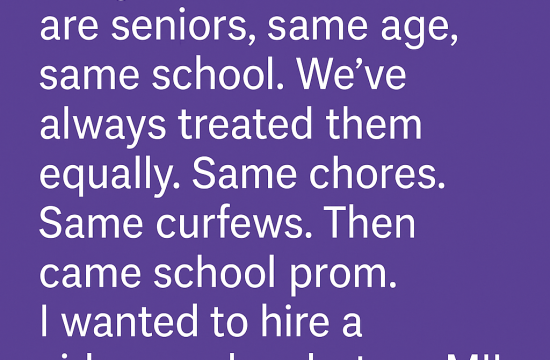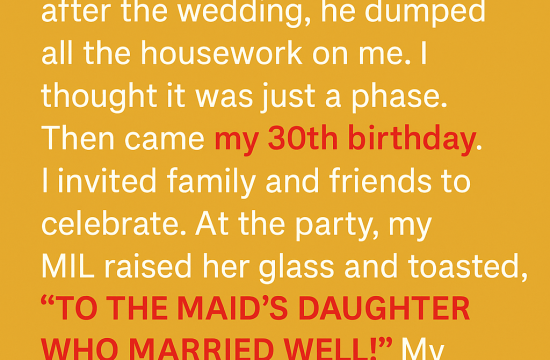I went to dinner with my friends, including Susan and Greg, who always dumped their expensive bills on others. I only ordered a drink, while they ordered pricey meals, around $200. When it came time to split the check, I insisted we only pay for what we ordered, leaving them with a bigger share. The next day, they called me…
Greg’s voice was tight, fake-friendly. “Hey, Mira. We’re just worried about how you handled the check last night. It kind of made things awkward.”
Susan jumped in. “It’s just… we always split things evenly in this group. It’s how it’s always been.”
I said what I’d been holding in for months. “Right. But you two always order appetizers, cocktails, entrées, dessert. I had a seltzer. I’m not paying for your lobster.”
Dead silence. Then Greg muttered, “Well, maybe next time, you can just speak up earlier, before the check comes. It’s about the vibe, you know?”
That was the start of a weird frostiness. No texts. No invites. Dinners kept happening without me. At first, I was hurt—we’d been close since college. We used to travel together, crash on each other’s couches, even help move apartments. But over time, I realized I wasn’t sad about missing overpriced dinners where I paid for other people’s wine pairings. I was just missing the version of them that existed years ago.
Three months passed. I started making plans with other people. Hung out with my coworker Rina, who was newly single and loved long walks and cheap tacos. I reconnected with my cousin Zora. Somehow, I felt lighter.
Then came the wedding.
It was Maya’s, our old roommate. A destination wedding on the Maine coast in early June. She invited all of us, but texted me privately: Please come. I miss you. And you were always the glue of the group.
So I went.
The inn was charming—gray shingles, ivy, wild roses. I ran into friends from study abroad, big hugs and laughter on the porch. For the first time in months, I felt at ease.
But then I saw them—Susan in a flowy pale-blue dress, Greg in a too-bright coral button-down. Polite, brittle smiles. Nothing more.
At the welcome brunch, they immediately drew attention by demanding “something special” off-menu. Later at the rehearsal dinner, they went further—circulating an envelope to “tip” the staff. Except when I peeked inside, there was no money, just a scribbled note suggesting everyone contribute $200 per couple. I later caught Greg pocketing cash.
It was so on-brand, I almost laughed.
But the next day—the wedding—things escalated. During the reception, the gift card box went missing. Tension rippled through the tent. I remembered Greg sneaking in and out of the kitchen, schmoozing with staff. I quietly told Maya.
Security was discreet but thorough. Eventually, the card box was found stuffed into a garbage bag near the back exit. Cards opened, cash gone. Greg’s fingerprints were on the lid.
Susan tried to spin it—“He was just moving it for safekeeping!”—but witnesses came forward saying they saw him pocketing envelopes.
That was it. Maya, furious, confronted them. “You tried to rob my wedding.” They were escorted out, red-faced and silent.
The reception roared back to life. People danced harder, laughed louder, a collective relief filling the air. Justice had shown up.
Later, Maya pulled me aside. “Thank you. I’m sorry I didn’t see it sooner.”
I smiled. “You had better things to focus on.”
She tilted her head. “You always knew, huh?”
“Yeah,” I admitted. “But I was tired of being the one covering while paying for their filet mignon.”
She laughed. “Well, you’re back on the guest list for life.”
In the months that followed, people quietly cut ties with Susan and Greg. Not just because of the wedding stunt, but because we all started comparing notes—times they “forgot” their wallets, borrowed and never paid back. No one was even angry anymore. Just… done.
I didn’t gloat. I didn’t post about it. But part of me felt restored.
Later that summer, a girl named Neela messaged me. She had briefly dated Greg after he and Susan “took a break.” He had told her his version of the wedding story—how people turned on him, how I was “vindictive.” But when she met Maya, she heard the truth.
She wrote, “I almost believed him. But your name kept coming up in a way that felt… real. Like you were the only one not pretending.”
That struck me.
I used to think staying quiet made me easygoing. Low-drama. But silence only enabled people who counted on it. I didn’t need to start fights—I just needed to stop covering for bad behavior.
A few weeks later, I was at a backyard barbecue with Maya and her husband. Just close friends, barefoot in the grass, laughing, guitars strumming. And as the sun set, I realized something simple but huge:
I wasn’t missing out. Not on anything that mattered.
Susan and Greg built their friendships on charm and shortcuts. But people always remember how you make them feel when no one’s watching.
I don’t know where they are now. Last I heard, they moved cities.
But I’ve started over too. And I like my version better.




